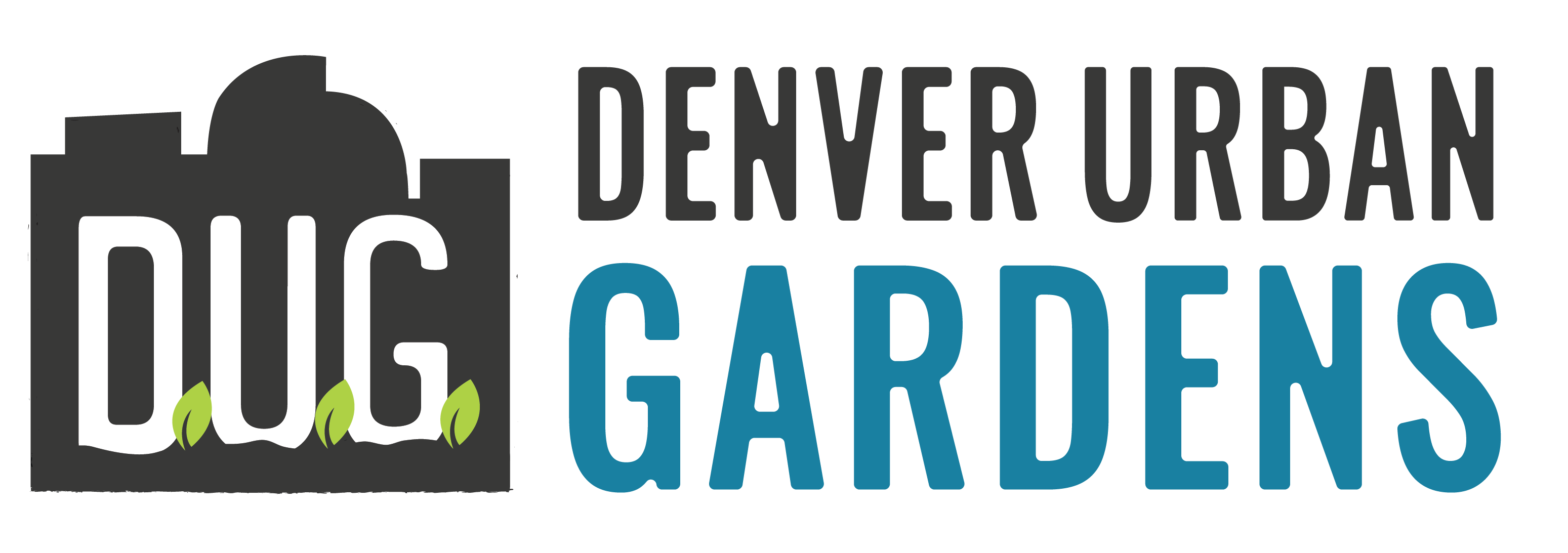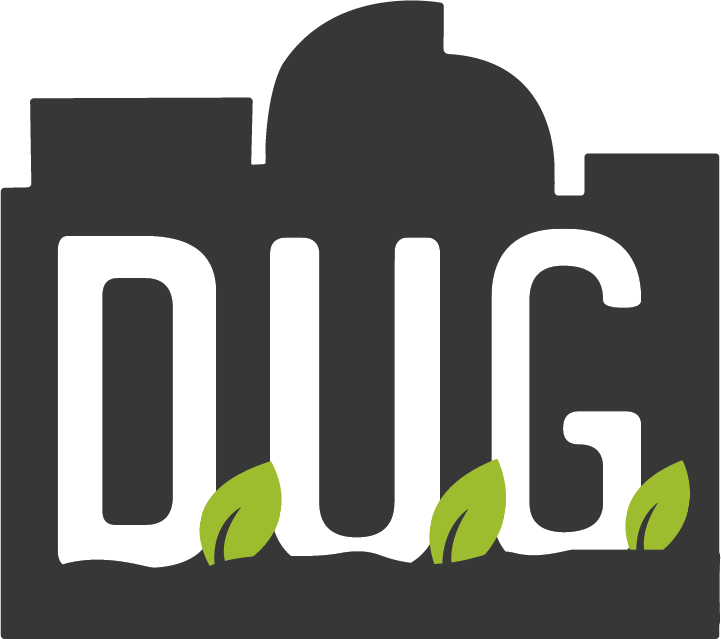Abbie Noriega, Denver Urban Gardens Communications and Development Coordinator
In Colorado, more than one in four working families do not have enough food to meet their basic needs. It’s a stunning and heartbreaking statistic, particularly given the recent cultural emphasis on food that is fresh and local. Even those with access to enough food may not have access to food that is nutritious. In the City and County of Denver alone, more than 4,000 households both do not have a car, and live in an area without a full service grocery store, which means their ability to obtain fresh food is severely limited.
As a community, how can we ensure that each one of our neighbors has reliable and affordable access to food that is nutritious? There are a host of national and local organizations working in partnership with government agencies and community members on a variety of strategies to relieve hunger and increase healthy food access in Metro Denver. A multi-faceted approach is key, in order to reach people in the ways that will be most effective for their particular community. Policy shifts, system-wide strategies, and collaboration among service providers are essential in providing services and solutions that are targeted and sustainable. Our friends at Hunger Free Colorado do an impressive job of acting as a hub for information, services, and resources relating to hunger in our state, and we encourage you to visit their site for an in-depth look into the challenges and current efforts around this issue.
 Growing for Project Angel Heart at the Rosedale Community GardenCommunity gardens are one piece of the food security puzzle, and can be a powerful and community driven tool for increasing healthy food options for many people, including those who aren’t active gardeners. In a recent survey, DUG community gardeners reported that on average, each community garden plot served four active community gardeners. Each plot also reportedly provided produce for an average of eight individuals who were not active gardeners. That means that DUG’s entire network of 135 community gardens serves 12,000 active community gardeners, and an additional 24,000 people who receive fresh produce. Because the great majority of DUG community gardens are located in neighborhoods with predominantly very low, low, or moderate income households, gardens serve as an important source of food for residents at risk for food insecurity. And the impact is a big one: data from our annual weighing project suggest that DUG gardeners are collectively growing more than 221 tons of food each growing season.
Growing for Project Angel Heart at the Rosedale Community GardenCommunity gardens are one piece of the food security puzzle, and can be a powerful and community driven tool for increasing healthy food options for many people, including those who aren’t active gardeners. In a recent survey, DUG community gardeners reported that on average, each community garden plot served four active community gardeners. Each plot also reportedly provided produce for an average of eight individuals who were not active gardeners. That means that DUG’s entire network of 135 community gardens serves 12,000 active community gardeners, and an additional 24,000 people who receive fresh produce. Because the great majority of DUG community gardens are located in neighborhoods with predominantly very low, low, or moderate income households, gardens serve as an important source of food for residents at risk for food insecurity. And the impact is a big one: data from our annual weighing project suggest that DUG gardeners are collectively growing more than 221 tons of food each growing season.
We also know that on average, DUG community gardeners donate approximately 10% of all they produce they grow, and that in 2012 and 2013, community gardens in our network coordinated produce donation programs for at least 41 different food pantries and food assistance organizations. Examples include the Rosedale Community Garden, where gardeners have been making weekly collective donations to Project Angel Heart for years, and the West Washington Park Community Garden, which grew over 3,000 pounds of fresh, organic produce for Denver Urban Ministries (DenUm) in 2013 alone. These community partnerships don’t only improve food security for people in-need, they strengthen connections between community gardeners, and empower people of all ages and backgrounds to take charge of healthy food access in their own neighborhood.
DUG community gardeners interested in getting a produce donation program going in their garden should contact Emily Frost at emily@dug.org, or should plan on attending our June Garden Leader Round Table, which will focus on exactly this topic! Home gardeners interested in donating directly to food pantries in their neighborhoods can connect to those pantries via the Produce for Pantries partnership.
For more ways to learn about and support healthy food access for all people throughout Metro Denver, check out the following resources, events, and initiatives:
- April 29th: Hunger, Faith, and Food Summit at St. John’s Cathedral
- June 12th: DUG Garden Leader Round Table on starting a produce donation program in your community garden
- Hunger Free Colorado’s Hunger P.O.D. Squad: Learn how you can take direct action to end hunger in your community
- Produce for Pantries: Connecting home and community gardeners to local pantries
- Healthy Food for All: Encouraging Grocery Investment in Colorado, Denver Food Access Task Force and The Colorado Health Foundation, 2011


 Denver Urban Gardens
Denver Urban Gardens
